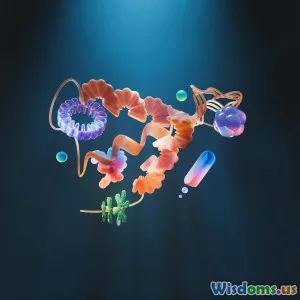
The Hidden Power of Secret Organizations
5 min read Explore the intriguing influence and dynamics of secret organizations and societies that shape our world from behind the scenes. (0 Reviews)
The Hidden Power of Secret Organizations
In the shadows of society, beyond the reach of the public eye, secret organizations wield significant influence. Often shrouded in mystery, these groups have played pivotal roles in shaping history, politics, and culture. This article delves into the hidden power of secret organizations, exploring their purpose, operations, and impact on the world.
Understanding Secret Organizations
Secret organizations are typically characterized by their clandestine nature, restricted membership, and a set of exclusive rituals or practices. While many people are familiar with groups like the Freemasons or the Illuminati, the reality is that secret organizations exist across various sectors, from politics to religion, and even social clubs.
The Purpose Behind Secrecy
The primary reasons for the secrecy of these organizations include:
- Protection of Members: Many organizations seek to protect their members from external threats, be they political, social, or economic.
- Maintaining Influence: By operating in secrecy, these organizations can exert influence without attracting unwanted attention or scrutiny from authorities or the public.
- Creating a Sense of Belonging: The exclusivity of secret groups can foster a sense of belonging and loyalty among members, often resulting in tight-knit communities that work collectively towards shared goals.
Historical Context
Throughout history, secret organizations have emerged during times of political turmoil or social change. For instance, the Knights Templar played a significant role during the Crusades, while the Carbonari were instrumental in the Italian unification in the 19th century. In modern times, groups like the Bilderberg Group have been criticized for their secretive meetings involving influential global leaders, raising questions about their role in shaping international policies.
The Role of Technology
In the digital age, technology has transformed how secret organizations operate. The internet allows for greater communication and coordination among members, while also enabling the dissemination of information at lightning speed. However, this has also led to increased scrutiny and exposure, as whistleblowers and investigative journalists work to unveil the hidden activities of these groups.
The Influence on Society and Politics
Secret organizations often have far-reaching effects on the political landscape. Their influence can manifest in several ways:
- Lobbying and Advocacy: Many secret organizations engage in lobbying efforts to push specific agendas, often reflecting the interests of their members.
- Network Building: Members often leverage their connections within these organizations to advance their careers or influence decision-making processes.
- Cultural Impact: The values and beliefs promoted by secret organizations can permeate popular culture, shaping societal norms and expectations.
Case Studies
- The Freemasons: One of the most well-known secret societies, the Freemasons have been accused of influencing political decisions and societal norms for centuries. Their emphasis on brotherhood and moral uprightness has affected various aspects of society beyond their membership.
- Skull and Bones: This Yale University society has produced numerous influential figures in government and business. The secrecy surrounding its rituals and membership has led to speculation about its impact on American politics.
Conclusion
The hidden power of secret organizations is a multifaceted phenomenon that continues to intrigue and perplex. While their influence may be difficult to quantify, it is undeniable that these groups have played significant roles throughout history, shaping our world in ways that often remain unacknowledged. Understanding their dynamics can provide valuable insights into the forces that drive societal change and political discourse.
As we continue to explore these secretive organizations, it is essential to maintain a critical perspective, recognizing both the potential for positive impact and the risks associated with unchecked power and secrecy.
Rate the Post
User Reviews
Popular Posts





















